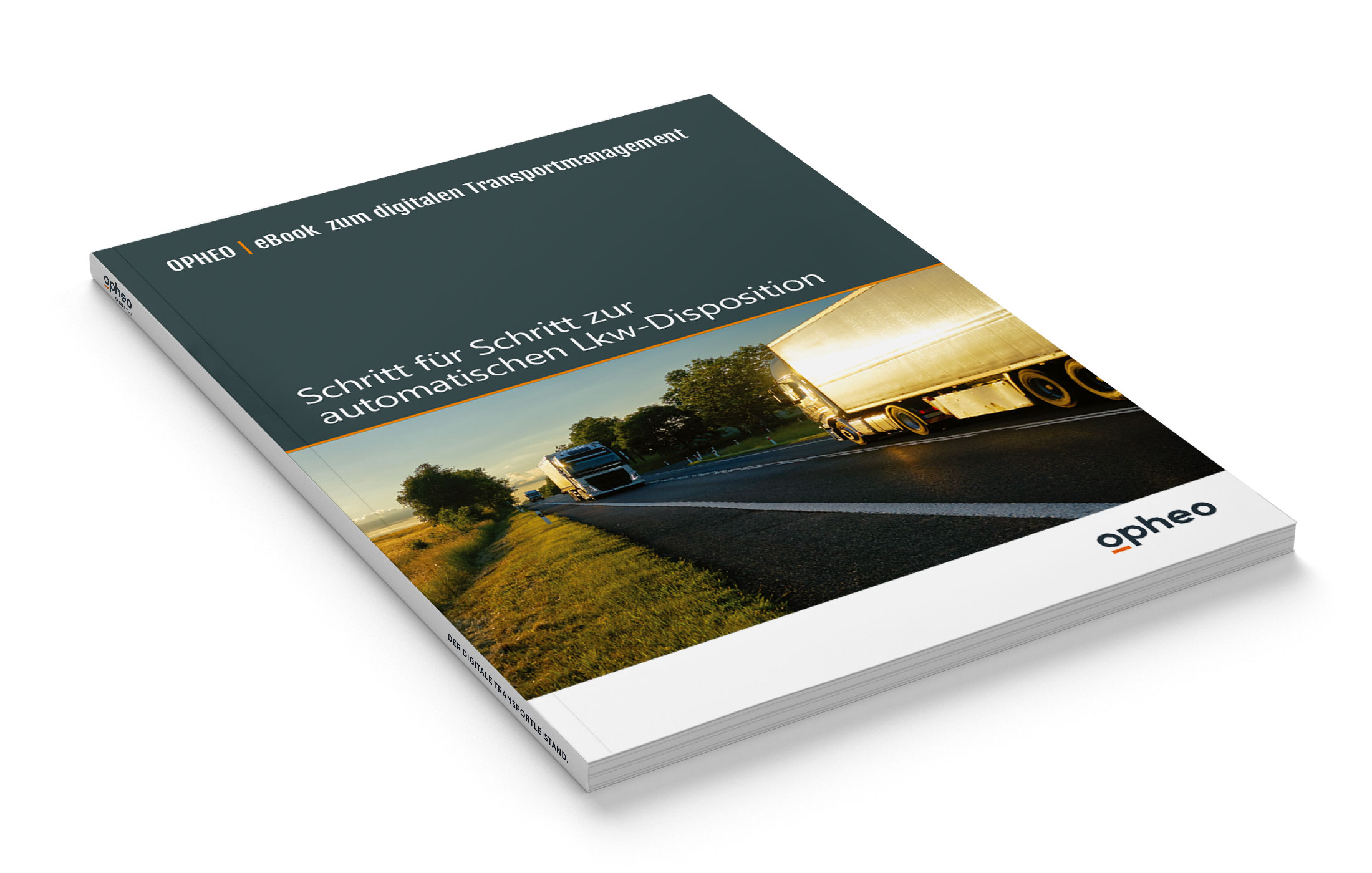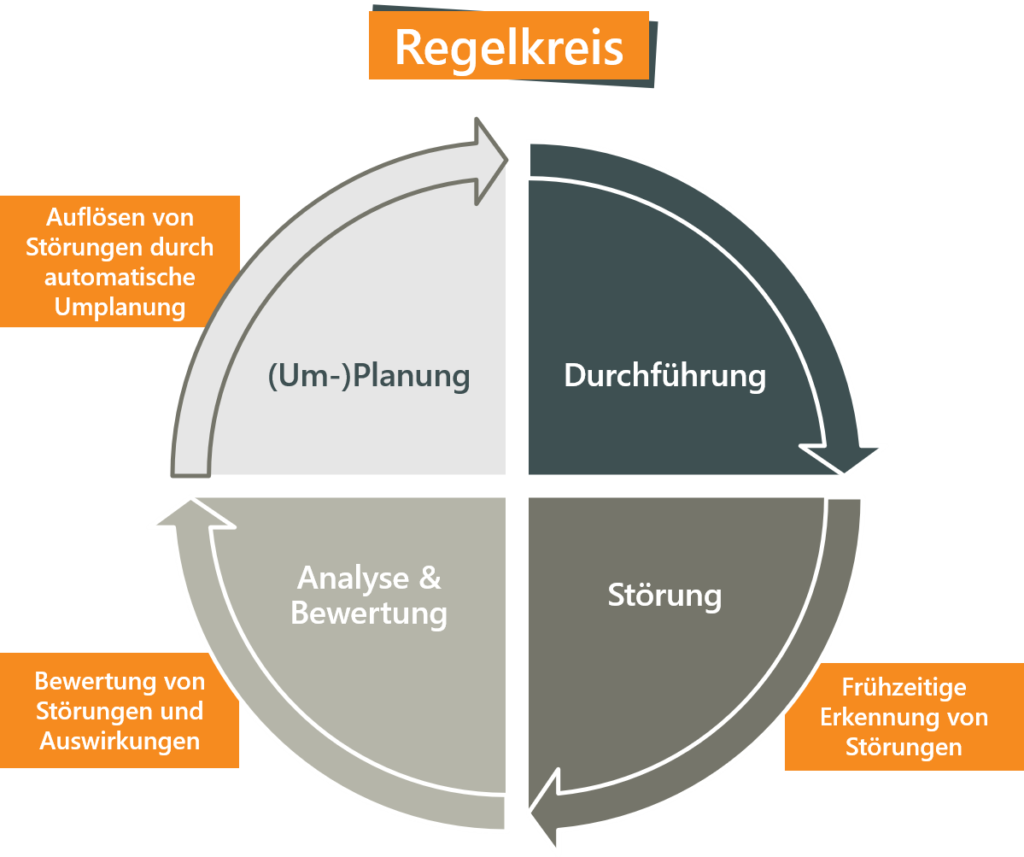Automatic Tour Optimization

Basics of Tour Optimization
Tour optimization is one of the critical elements of truck dispatching. However, the more complex and multi-layered the tour planning, the greater the optimization potential.
Automating tour optimization therefore offers a high degree of improvement. On the one hand, through enormous time savings; and on the other hand through improvements in the quality
of the planning results. At the same time, the automation of tour optimization creates the perfect framework conditions for a modern and attractive workplace for your dispatchers.
How does the dispatcher optimize tours?
The main task of dispatching is to create an efficient, cost-minimizing and resource-saving tour plan by sensibly allocating and balancing transport orders with the available resources of vehicles and drivers.
In tour optimization, the dispatcher aims to achieve a step-by-step improvement of the tour plan by making changes in the original tour plan. Ideally, the optimization should lead to a lower use of resources, lower driving and wasted kilometers and as a consequence, lower transport costs. Due to the abundance of information relevant to planning and the complexity of the factors to be taken into account, manual tour optimization by the dispatcher is practically impossible to implement.
What factors must be considered?
- Driving times and rest periods
- Driver qualifications
- Loading capacities
- Distance
- Appointment commitments
- Duration of loading times
- Equipment requirements (e.g. mobile lift truck)
In order to achieve successful resource-saving route optimization, rely on OPHEO’s intelligent optimization algorithms that support dispatchers very effectively.
This is how tour optimization works with
OPHEO Optimizer
You are currently viewing a placeholder content from Default. To access the actual content, click the button below. Please note that doing so will share data with third-party providers.
More InformationPlanning goals and restrictions
In order to ensure a commercial optimization of the tour plan on the one hand and its practical feasibility on the other, OPHEO’s tour optimization takes into account the following objectives and restrictions:
- Minimisation of kilometers
- Minimisation of driving times
- Minimisation of schedule violations
- Compliance with the Smart Planning rules
All OPHEO optimizers use evolutionary algorithms and thus calculate optimized tour suggestions fully automatically. The tour suggestions can be individually adapted to the customer’s framework conditions with the help of optimization parameters and the flexible OPHEO rule set. The above objectives can be weighted differently using adjustable parameters. In this way, the user can configure the extent to which they are willing to violate an appointment in order to save kilometers.
Optimizer
The most flexible optimizer is the newly developed Optimizer. In addition to depot transport, it can also be used to automatically plan tour transport in the area of partial and full loads.
Mathematically, the Optimizer is based on a self-learning algorithm developed by OPHEO. This planning procedure, known as ‘Adaptive Evolutionary Search’, is able to calculate thousands of tour plans within a very short time and achieve a step-by-step improvement through individual plan changes. The approach of the dispatcher is deliberately simulated. The optimizer intelligently ‘remembers’ which change steps have led to improvements or deteriorations in the tour plan and prefers changes with a higher probability of success for further steps.
concreteOptimizer
Due to the special framework conditions of the ready-mixed concrete business, special requirements must be taken into account when dispatching truck mixers. In particular, synchronized timing of the individual deliveries must be taken into account in order to ensure smooth processes on the construction site.
With concreteOptimizer, OPHEO therefore offers a planning algorithm that was developed specifically for the requirements of the ready-mix concrete business. Of course, concreteOptimizer also takes into account required driver qualifications and vehicle characteristics, and enables flexible parameterization of different planning objectives.
classicOptimizer
Due to its algorithm, classicOptimizer is ideally suited for dispatching in the bulk goods sector. Its special features, such as the combination of delivery and disposal, but also order splitting, multi-chamber planning or subsequent loading bans are special requirements that classicOptimizer always takes into account.
Autonomous dispatching with the OPHEO Road Engine
The OPHEO Road Engine extends the route optimization of OPHEO with an AI component for autonomous truck dispatching. ‘road’ stands for ‘rolling automatic dispatching’. Based on the telematics data transmitted from the trucks, the Road Engine automatically recognizes when conflicts are imminent, such as violations of deadlines or driving time overruns.
As a reaction, Road Engine independently reschedules the current tour plan with the help of an evolutionary algorithm, which eliminates or minimizes the conflicts. The drivers receive the route changes on their telematics devices without the dispatcher having to check alternatives themself or intervene manually.
In this way, OPHEO Road Engine automates the transport management process, enables high productivity increases in dispatching, saves costs, and increases the service quality towards customers by minimizing conflicts.

